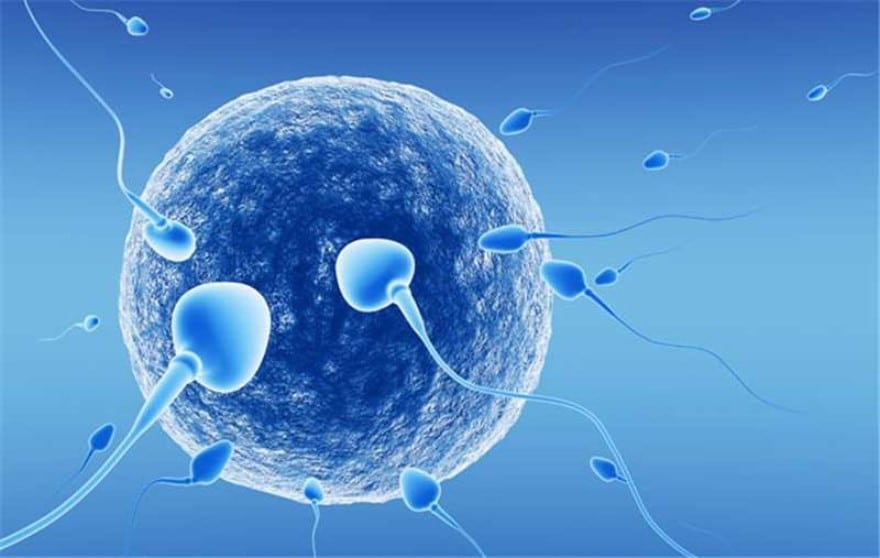Traditionally, infertility was seen as a woman’s problem or defect. But, eventually, men were also found to be affected by infertility. In one out of three infertile couples, the failure to get pregnant is due to the man alone, and men being part of the reason in almost 50% of infertile couples.
Male infertility happens. He could have a potential health issue that lowers the chances of him getting his partner or wife pregnant. Approximately 13 out of 100 couples could not get pregnant even with unprotected sex. There are many causes why and in over one third of these cases the problem is male infertility. This happens when there is an issue in man’s sperm production or delivery – see here for more information on male infertility.
Normal Conditions
The reproductive system of a man produces, stores, and transports the tiny cells or sperm. This and testosterone (male sex hormone) are made in the testicles of a man. There are two testicles, and these are held in the scrotum which is a skin sac located below the penis. When the tiny cells leave the testicles, they travel through a tube, called epididymis, behind the testicles.
Right before ejaculation happens, these sperms go from the epididymis to the vas deferens, another set of tubes. These are connected to the ejaculatory duct from the seminal vesicle. When ejaculation happens, it combines with fluids coming from the prostate and the seminal vesicle. This forms the semen that comes out of the penis through the urethra.
Fertility
Male infertility depends on the production and delivery of normal sperm. It goes into the female’s reproductive organ through the vagina. It travels through the cervix down into the uterus and into the fallopian tubes where it meets the egg and fertilization happens.
This system works when next to the genes, the hormone levels and conditions of the environment is favorable. Production of healthy sperms depends on many things. Problems can happen and stop cells from growing or keep them from reaching the egg. Even the scrotum’s temperature is also a factor to male infertility.
Causes to Male Infertility
- Disorders such as:
- Underdeveloped sperm
- Oddly shaped sperms
- No motility
- Oligospermia – low sperm count
- Azoospermia – no sperm produced
- Genetic problems – trait a man is born with
- Lifestyle – choices such as smoking, alcohol intake, and certain medications
- Long-term sickness can also cause infertility – sickness such as kidney failure, mumps during childhood; and problems with chromosome or hormones, such as low testosterone level.
- Damages to the reproductive system such as blockages in the sperm passage (birth defect for example) can cause low sperm count or azoospermia.
- Varicoceles or a condition where the veins in the scrotum are swollen can also cause infertility. This condition harms their growth because the swelling blocks the proper flow of blood.
- Retrograde Ejaculation is going backward of semen into the body. The semen goes into the bladder instead of going out into the penis and delivers into the vagina. The semen may have normal count, but it does not reach the vagina because of the failure of the nerves and muscles to close during climax. This condition may be resulting from health problems in the nervous system or due to a surgery or certain medications.
- Obstruction – repeated infections, swelling, or a surgery such as vasectomy or developmental defects can cause an obstruction. Obstruction in any part of the male reproductive system, such as those discussed in https://www.news-medical.net/health/Blockage-of-Sperm-Transport.aspx, will prohibit them from leaving the testicles or travelling during ejaculation causes infertility.
- Hormones – Very low hormones cause low productivity or growth of sperms. Hormones tell the testicles to produce sperm so if there is a low hormone count, there will also be a low count.
- Chromosomes – changes in the structure and number of chromosomes can also affect fertility.
- Medications – intake of medications also affects sperm production as well as it affects delivery of the sperm. Medication used to treat illnesses like depression, arthritis, digestive issues, infections, cancer, high blood pressures, and others. For arthritis consider turmeric supplements.
Analysis of the Semen
A routine laboratory test can help ascertain the causes of infertility. This is usually done twice. A man masturbates into a sterile cup that catches the semen. The semen sample is then studied and checked to ascertain what caused the infertility. It is tested for accounts such as volume, concentration, motility, count, and structure.
Sperm quality tells much about the ability to start a pregnancy. For example, if semen turns from a pearly gel into liquid in a matter of 20 minutes, this is said to be normal. If it does not, then there may be a problem. A sperm-free sample lacking fructose could mean there are no seminal vesicles, or it could mean an obstruction in the ejaculatory duct.
But sometimes visiting fertility clinics can be a big step out of a man’s comfort zone; one may be hesitant to go. This should not become a problem because one can do an initial at home sperm test. One can perform the test comfortably in the privacy of his own home.
A low or no sperm count does not necessarily mean that you are permanently infertile. This could be just a sign that there is a problem in production and/or the delivery of sperm. Then more tests may be necessary.
Resources: https://futureyouhealth.com/knowledge-centre/sperm-health



